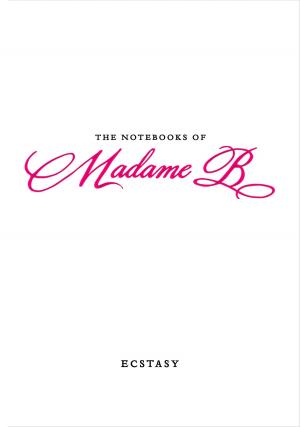Superpower?
The Amazing Race Between China's Hare and India's Tortoise
Business & Finance, Economics, International Economics, Nonfiction, Travel, Asia, Social & Cultural Studies, Political Science, International| Author: | Raghav Bahl | ISBN: | 9781101466056 |
| Publisher: | Penguin Publishing Group | Publication: | October 28, 2010 |
| Imprint: | Portfolio | Language: | English |
| Author: | Raghav Bahl |
| ISBN: | 9781101466056 |
| Publisher: | Penguin Publishing Group |
| Publication: | October 28, 2010 |
| Imprint: | Portfolio |
| Language: | English |
Is India ready for superpower status or too far behind China to ever catch up?
In his career as one of India's leading journalists and entrepreneurs, Raghav Bahl has often faced this question, and many others, from bewildered visitors:
* Why are Indian regulations so weak and confusing?
* Why is your foreign investment policy so restrictive?
* How come your hotels are world class, but the roads leading to them are so potholed?
* Why don't you lower your voice when you make fun of your politicians?
* Why do you control the price of oil and cable TV?
Clearly there's a huge difference in how India and its arch-rival China work on the ground. China is spectacularly effective in building infrastructure and is now reinvesting almost half its GDP. Meanwhile, India is still a "promising" economy: more than half its GDP is consumed by its billion-plus people, yet India has some unique advantages: Half its population is under twenty-five, giving it a strong demographic edge; 350 million Indians understand English, making it the largest English-speaking country in the world; and it's the world's largest democracy.
In the race to superpower status, who is more likely to win: China's hare or India's tortoise? Bahl argues that the winner might not be determined by who is investing more and growing faster today but by something more intangible: who has superior innovative skills and more entrepreneurial savvy.
He notes that China and India were both quick to recover from the financial crisis, but China's rebound was accompanied by huge debt and deflation, with weak demand. India's turnaround was sturdier, with lower debt and modest inflation. So India's GDP grew twice as fast as China's for a few quarters-the first time that had happened in nearly three decades. And in contrast to China's Yuan, which is pummeled for being artificially undervalued, India's rupee largely floats against world currencies. In the end, it might come down to one deciding factor: can India fix its governance before China repairs its politics?
With insights into the two countries' histories, politics, economies and cultures, this is a well-written, fully documented, comprehensive account of the race to become the next global superpower. For anyone looking to understand China, India and the future of the world economy, this is the book to read.
Is India ready for superpower status or too far behind China to ever catch up?
In his career as one of India's leading journalists and entrepreneurs, Raghav Bahl has often faced this question, and many others, from bewildered visitors:
* Why are Indian regulations so weak and confusing?
* Why is your foreign investment policy so restrictive?
* How come your hotels are world class, but the roads leading to them are so potholed?
* Why don't you lower your voice when you make fun of your politicians?
* Why do you control the price of oil and cable TV?
Clearly there's a huge difference in how India and its arch-rival China work on the ground. China is spectacularly effective in building infrastructure and is now reinvesting almost half its GDP. Meanwhile, India is still a "promising" economy: more than half its GDP is consumed by its billion-plus people, yet India has some unique advantages: Half its population is under twenty-five, giving it a strong demographic edge; 350 million Indians understand English, making it the largest English-speaking country in the world; and it's the world's largest democracy.
In the race to superpower status, who is more likely to win: China's hare or India's tortoise? Bahl argues that the winner might not be determined by who is investing more and growing faster today but by something more intangible: who has superior innovative skills and more entrepreneurial savvy.
He notes that China and India were both quick to recover from the financial crisis, but China's rebound was accompanied by huge debt and deflation, with weak demand. India's turnaround was sturdier, with lower debt and modest inflation. So India's GDP grew twice as fast as China's for a few quarters-the first time that had happened in nearly three decades. And in contrast to China's Yuan, which is pummeled for being artificially undervalued, India's rupee largely floats against world currencies. In the end, it might come down to one deciding factor: can India fix its governance before China repairs its politics?
With insights into the two countries' histories, politics, economies and cultures, this is a well-written, fully documented, comprehensive account of the race to become the next global superpower. For anyone looking to understand China, India and the future of the world economy, this is the book to read.















